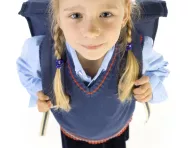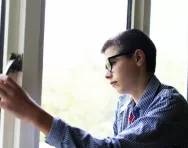Important update from TheSchoolRun
For the past 13 years, TheSchoolRun has been run by a small team of mums working from home, dedicated to providing quality educational resources to primary school parents. Unfortunately, rising supplier costs and falling revenue have made it impossible for us to continue operating, and we’ve had to make the difficult decision to close. The good news: We’ve arranged for another educational provider to take over many of our resources. These will be hosted on a new portal, where the content will be updated and expanded to support your child’s learning.
What this means for subscribers:
- Your subscription is still active, and for now, you can keep using the website as normal — just log in with your usual details to access all our articles and resources*.
- In a few months, all resources will move to the new portal. You’ll continue to have access there until your subscription ends. We’ll send you full details nearer the time.
- As a thank you for your support, we’ll also be sending you 16 primary school eBooks (worth £108.84) to download and keep.
A few changes to be aware of:
- The Learning Journey weekly email has ended, but your child’s plan will still be updated on your dashboard each Monday. Just log in to see the recommended worksheets.
- The 11+ weekly emails have now ended. We sent you all the remaining emails in the series at the end of March — please check your inbox (and spam folder) if you haven’t seen them. You can also follow the full programme here: 11+ Learning Journey.
If you have any questions, please contact us at [email protected]. Thank you for being part of our journey it’s been a privilege to support your family’s learning.
*If you need to reset your password, it will still work as usual. Please check your spam folder if the reset email doesn’t appear in your inbox.
The parents’ guide to school trips

Q. What can I expect from my child’s school trip?
Anything from a daytrip to a museum to a week’s skiing holiday. ‘Primary schools tend to favour places within two hours’ travelling distance,’ says Ian Pearson, general manager of the School Travel Forum. ‘Adventure centres, field study centres, RSPB centres and farms are all popular, although more adventurous schools venture further afield, for example to the Isle of Wight, France, Belgium and Holland.’ Often, schools offer a one-night residential for children at the start of Key Stage 2, and a longer trip in Year 6.


Start your child on a learning programme!
- English & maths worksheets direct to your inbox
- Follows the National Curriculum
- Keeps your child's learning on track
Q. Do school trips really enrich my child’s learning?
Absolutely, says Frances Bartlett, headteacher of Radley Primary School in Oxfordshire. ‘Not only do residential trips provide experiences that we can’t offer on-site, such as canoeing, caving and abseiling, but children are extended in a way that doesn’t happen in the classroom,’ she explains. ‘They participate in team-building activities, develop stronger peer relationships, and grow in confidence before our eyes.’
Janie Burt, managing director of school trip provider JCA, agrees. ‘In our independent survey, 99% of teachers say students are more animated and engaged in learning on school trips than in the classroom,’ she says.
Q. Are school trips compulsory?
In 2010, the Department for Children, Schools and Families called for educational visits to become part of the National Curriculum, but there’s currently no obligation for schools to offer trips – or for your child to go. ‘We work hard to reassure parents and children who are anxious about school trips, so that no one misses out,’ adds Frances Bartlett. ‘If children aren’t happy about going away for a whole week, for example, we can suggest they come for one or two nights. However, if students choose to stay at school, we provide alternative activities for them.’
Q. What if I can’t afford it?
Schools are allowed to charge for board and lodgings for residential trips. They can’t charge for activities during school hours, but most request a ‘voluntary contribution’ of anything from a few pounds for a local daytrip up to hundreds for a residential visit. If you can’t afford to pay, write in confidence to the headteacher; costs can usually be covered in cases of hardship.
Q. Will my child be safe?
‘Schools have safeguarding as their highest priority, and conduct rigorous risk assessments for every activity,’ says Frances Bartlett.
A risk assessment must be carried out if the trip involves greater risks than there would be in the classroom. This could be due to:
- The distance from school
- The type of activity
- The location
- Needing staff with specialist skills.
They must adhere to correct staffing ratios and ensure that children’s individual physical, medical, social and behavioural needs are considered. High-risk activities such as climbing, abseiling and watersports must always be risk-assessed.
Schools should also hold a pre-trip parents’ meeting where you can raise any particular concerns.
Many schools use either local authority residential centres, which are strictly audited and inspected, or independent providers that have achieved the Learning Outside the Classroom Quality Badge. ‘All Quality Badged centres undergo an annual audit covering health and safety and the facilitation of good learning experiences,’ says Ian Pearson.
If an outside organisation doesn't have a Learning Outside the Classroom badge, schools must check that it's appropriate and safe to use that organisation. This involves looking at aspects such as their liability insurance, the competence of staff, and the quality of accommodation.
Schools must also have an emergency response plan to follow if an accident or incident occurs during a trip.
Q. Will my child be homesick?
‘Many children have moments of homesickness, and we talk about that possibility before we go,’ says Frances Bartlett. ‘It’s rare that a child is inconsolable, though, but if it happens, we’ll phone the parents and put a plan in place.’
‘Don’t do what I did and pop little notes in your child’s suitcase,’ advises Helen, mum to Mary, 12. ‘It seemed like a good idea at the time, but the teachers almost had to send my daughter home as she was so overtired and my note tipped her over the edge.’
Chances are, though, that your child will surprise you. ‘My daughter went on her first residential at the age of five, and although she was anxious beforehand, she tumbled off the coach at the end saying she hadn’t missed me at all,’ says Sara, mum to Phoebe, nine.
Q. What if I fall apart?
It’s natural to miss your child and worry about how she’s coping, but try to put on a brave face until the coach has left. ‘I always jokingly say to my girls, “I shall be too busy to miss you,” give them a hug and a smile, and off they go,’ says Sarah, whose children Lolly and Bethany first went on residential trips at age five and six.
Many schools prefer children not to phone home, but they must have a communications plan in place that sets out how routine communications will be handled, including regular check-ins and calls to reassure parents and carers.
If schools don't allow contact with home, there are other ways to keep in touch. ‘We have daily phone contact with the group, so parents can call the school if they’re concerned, and we also update our website every day with photos,’ says Frances Bartlett. And there’s nothing like seeing your child smiling out from your computer screen to put your mind at rest.








